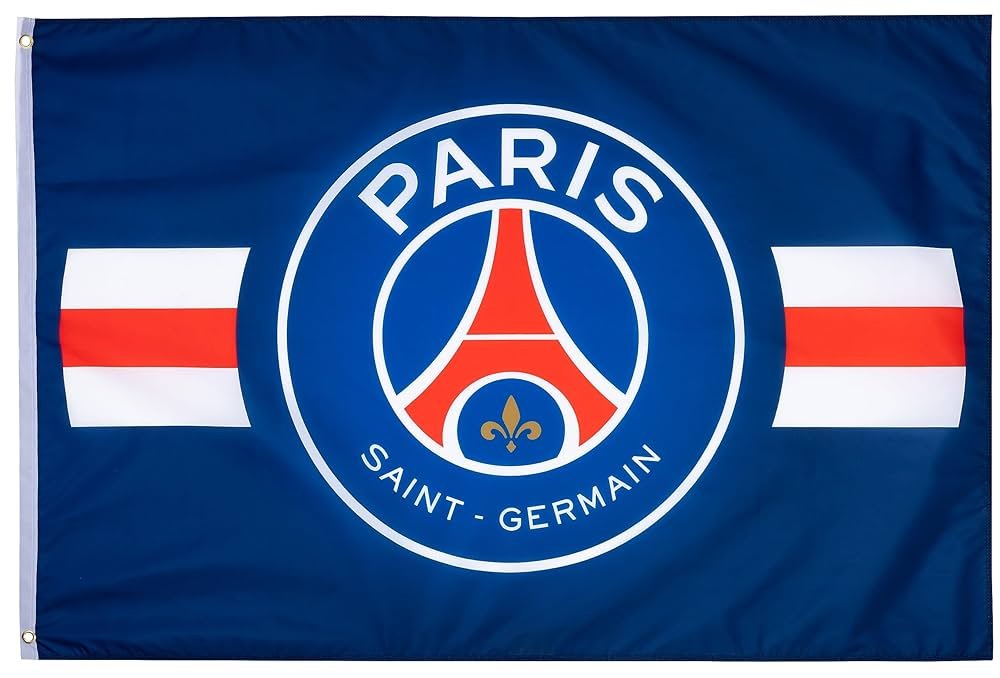
Paris Saint-Germain (PSG) has become one of the biggest clubs in world football, thanks to significant financial backing, strategic signings, and a shift in Ligue 1’s competitive landscape. Since the Qatar Sports Investments (QSI) takeover in 2011, PSG has dominated French football and emerged as a major force in European competitions.
But how did PSG evolve from a mid-table French club into a global football powerhouse? More importantly, how has their rise influenced Ligue 1 and its competitiveness?
In this article, we’ll explore:
- The pre-QSI era and PSG’s early struggles.
- The QSI takeover in 2011 and the club’s transformation.
- The impact of superstar signings like Neymar, Mbappé, and Messi.
- The effect of PSG’s dominance on Ligue 1 clubs.
- The future of PSG and Ligue 1’s competitive landscape.
1. PSG Before the QSI Takeover (1970-2011): A Club in Transition
Paris Saint-Germain was founded in 1970, making it one of the youngest major clubs in Europe. Despite some success in the 1980s and 1990s, including:
- Two Ligue 1 titles (1986, 1994)
- The 1996 UEFA Cup Winners’ Cup
- French Cup and domestic trophies
PSG was never considered an elite club.
Financial Struggles and Instability (2000s)
During the 2000s, PSG faced:
- Frequent managerial changes.
- Lack of consistent success.
- Limited financial resources.
The club won the 2008 French League Cup but struggled to compete against Lyon’s dominance, who won seven consecutive Ligue 1 titles from 2001 to 2008. PSG was a mid-table club with no real European influence.
Then, everything changed in 2011.
2. The QSI Takeover (2011-Present): A New Era for PSG
In 2011, Qatar Sports Investments (QSI) bought PSG with a clear vision:
- Turn PSG into a global football superpower.
- Compete with European giants like Real Madrid, Barcelona, and Manchester United.
- Transform Ligue 1 into a world-class league.
Massive Investments and Immediate Success
With unlimited financial backing, PSG began spending on:
- World-class players.
- Elite managers.
- State-of-the-art facilities.
Biggest Signings Under QSI
Early Superstars (2011-2016): Laying the Foundation
- Zlatan Ibrahimović (2012) – The Swedish striker became the face of PSG’s new era.
- Thiago Silva (2012) – A world-class defender and club leader.
- Edinson Cavani (2013) – One of PSG’s greatest goal scorers.
The Neymar & Mbappé Era (2017-Present): Global Expansion
- Neymar Jr. (2017) – Signed for €222 million, the world’s most expensive transfer.
- Kylian Mbappé (2017) – PSG secured the young French superstar for €180 million.
The Messi Effect (2021-Present): A New Dimension
- Lionel Messi joined PSG in 2021 after leaving Barcelona, boosting PSG’s global fanbase.
With these signings, PSG dominated French football, winning multiple Ligue 1 titles and reaching the UEFA Champions League final in 2020.
3. PSG’s Impact on Ligue 1
A One-Team League? PSG’s Dominance in France
Since 2011, PSG has dominated Ligue 1, winning:
✅ 9 Ligue 1 titles in 12 seasons.
✅ Multiple French Cups and Super Cups.
✅ Setting records for most points, goals, and winning streaks.
However, this dominance has:
- Reduced Ligue 1’s competitiveness, as PSG wins easily.
- Forced other clubs to sell top players due to financial gaps.
- Made Ligue 1 a “one-team league” in European football discussions.
The Financial Divide Between PSG and Other Clubs
PSG’s financial power dwarfs other Ligue 1 clubs:
- Their budget exceeds €600 million, while clubs like Marseille or Lyon struggle to reach €200 million.
- PSG can sign world-class stars, while other clubs develop talent only to sell them to bigger European teams.
Despite these challenges, some clubs have fought back:
- AS Monaco (2017) – Won Ligue 1 with stars like Mbappé and Bernardo Silva.
- Lille (2021) – Shocked PSG by winning the title with smart scouting and team chemistry.
Ligue 1 as a Talent Factory for Europe
Ligue 1 is now seen as Europe’s best talent-producing league, with players like:
- Karim Benzema (Lyon to Real Madrid)
- Kylian Mbappé (Monaco to PSG)
- Eduardo Camavinga (Rennes to Real Madrid)
While PSG raises Ligue 1’s profile, it also leads to French clubs losing their best players to La Liga and the Premier League.
4. PSG in Europe: The Missing Champions League Trophy
Despite domestic dominance, PSG has failed to win the UEFA Champions League. Their biggest disappointments include:
- 2017 – Lost a 4-0 lead to Barcelona in the “Remontada” (6-5 aggregate).
- 2019 – Eliminated by Manchester United despite leading 2-0 from the first leg.
- 2020 – Reached their first Champions League final but lost to Bayern Munich.
- 2022 – Knocked out by Real Madrid despite having Messi, Neymar, and Mbappé.
Winning the Champions League remains PSG’s biggest challenge.
5. The Future of PSG and Ligue 1
Will PSG Continue to Dominate Ligue 1?
As long as Qatar continues investing, PSG will likely remain France’s top club. However, clubs like Marseille, Monaco, and Lyon will keep challenging them.
Can Ligue 1 Become More Competitive?
For Ligue 1 to compete with the Premier League and La Liga, it needs:
- Better TV deals to increase club revenues.
- Stronger financial regulations to balance competition.
- More investment in youth academies to retain top talent.
Can PSG Finally Win the Champions League?
If PSG:
✅ Improves squad depth.
✅ Signs world-class midfielders and defenders.
✅ Hires a manager who can manage superstar egos.
Then, they could finally lift the UEFA Champions League trophy.
Conclusion
PSG’s modern transformation has been one of the most fascinating stories in football. Their financial power and superstar signings have reshaped Ligue 1, making it more popular but also less competitive.
As PSG aims for Champions League glory, Ligue 1 must adapt to remain a strong and competitive league.
Are you a PSG or Ligue 1 fan? Support with Aw8 online casino Singapore!